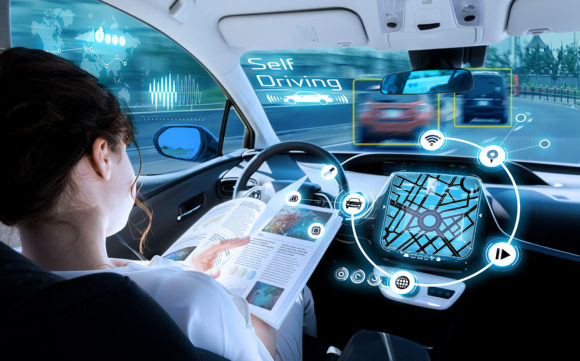Self-driving cars promise safer roads, less traffic and increased mobility. Some autonomous vehicle proponents also maintain they will save time and money. But will they really save Americans time and money? And even if they do, are Americans ready to give up driving?
Online insurer Esurance surveyed consumers, analyzed trends and spoke to experts to find out.
“Like with most new technology, we’ll see consumer perceptions evolve and adoption accelerate as the promised benefits of self-driving cars are realized,” said Haden Kirkpatrick, head of strategy and innovation at Esurance.
The reality is that the first fully autonomous cars will be very pricey and beyond the reach of most Americans. Manufacturers expect the early buyers will be businesses and the very wealthy. One developer says prices won’t start coming down enough for most to buy them until 2025 or beyond.
Until the price of ownership of self-driving vehicles comes down, most people will experience driverless vehicles through ridesharing, according to researchers.
According to Esurance, in the best-case scenario, a family that gives up its car in favor of driverless ridesharing could save $4,100 in annual transportation costs. Other research confirms that a 20 percent improvement in efficiencies of the personal transportation system would generate a 5 percent increase in household incomes.
By 2025, self-driving taxis could be commonplace.
General Motors Co. plans to start a pilot program this summer that will enable car owners to rent out their vehicles when they aren’t using them. The car maker has said it will start selling driverless vehicles next year.
Other ridesharing companies are testing driverless cars in Arizona, California and in other states.
Once driverless ridesharing is widely accessible, the Esurance researchers believe two-car households might be willing to go to just one car and some urban one-car households might drop their cars entirely, which could save families more money in transportation costs.
Was this article valuable?
Here are more articles you may enjoy.



 Maine Plane Crash Victims Worked for Luxury Travel Startup Led by Texas Lawyer
Maine Plane Crash Victims Worked for Luxury Travel Startup Led by Texas Lawyer  What Analysts Are Saying About the 2026 P/C Insurance Market
What Analysts Are Saying About the 2026 P/C Insurance Market  Pipeline Explodes at Delfin LNG Planned Project in Louisiana
Pipeline Explodes at Delfin LNG Planned Project in Louisiana  Trump’s Repeal of Climate Rule Opens a ‘New Front’ for Litigation
Trump’s Repeal of Climate Rule Opens a ‘New Front’ for Litigation 


